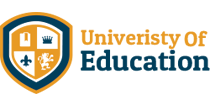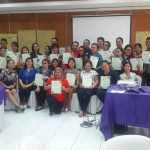VISION
The Psychology Program is dedicated to provide a collaborative environment for the learning of innovative and scientific contributions to the practice of psychology and be the professionals serving the local, national, and global communities.
MISSION
The psychology program seeks to meet the needs of future psychology professionals through a curriculum that is designed to facilitate exploration, discovery and dissemination of new knowledge in psychological science.
It aims to produce competent and ethical graduates in a variety of health care educational, and industrial settings through exposures to evidence-based services guided by the institutional core values of excellence, service, integrity, empowerment and commitment.
GOALS
It aims to produce graduates who have:
- Obtained a solid foundation in psychological concepts and research.
- Developed critical, innovative thinking and scientific approach to evaluate problems related to behavior and mental processes.
- Appreciated and applied psychological principles to individual, social and organizational issues.
- Cultivated the refinement of one’s interpersonal and self-reflective skills.
Further, the faculty and students of the Psychology Program shall be guided by the following four responsible standards goal:
- Standard of Rigor
Encourage students to embrace the value of reading and comprehending challenging concepts and processes that will harness their skills in the study of human behavior.
- Standard of Thought
Instill in the minds of the students the value of learning as manifested by their ability to collect and organize information, speak and write effectively, master the art of inquiry and problem-solving, and to engage in self-reflection.
- Standard of Diversity
Encourage students to take time to know their strengths and weaknesses, and individuality and utilize this knowledge to understand and work with the people from diverse culture.
- Standard of Authenticity
Ensure that students are provided with knowledge and skills that they can apply in the workplace.
PROGRAM PHILOSOPHY
An ecological model does not solely focus on the learner. Recognizing that learning is a transactional process in which the learner is affected and affects the learning environment and the learning process, the program emphasizes the proximal and distal environment influence of family, home-school collaboration, peers, neighborhoods, communities, world of work, public policies and culture
PROGRAM EDUCATIONAL OBJECTIVES
- Demonstrate theoretical knowledge in psychology; specifically: an understanding of theories, principles, concepts, and skills in psychology; develop and sustain arguments about established principles in psychology, critically evaluate these established principles, comprehend and evaluate new information that may be presented in various forms and sources;
- Demonstrate knowledge of the methods of psychological inquiry; specifically, understand and explain the main methods of inquiry, critically evaluate the appropriateness of different approaches to problem-solving in the field, and apply this knowledge to make judgments and create approaches to solving problems in an applied or an employment context;
- Apply psychological theories and methods; specifically, correctly apply the theories, principles, concepts and skills in psychology in an employment context; undertake research using these knowledge and skills in psychology, and communicate the results of such research to both specialist and non-specialist audiences;
- Demonstrate understanding of the ethical dimensions of the use of psychological theories and methods; and
Undertake further training for developing existing skills and acquiring higher level competencies either through formal graduate education or in an employment context.








